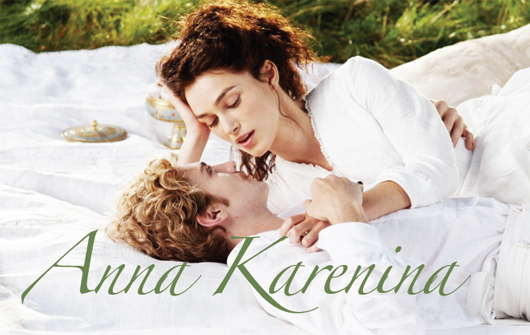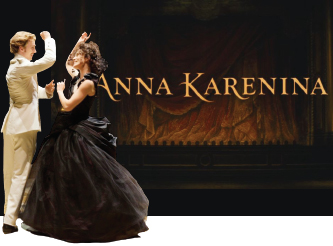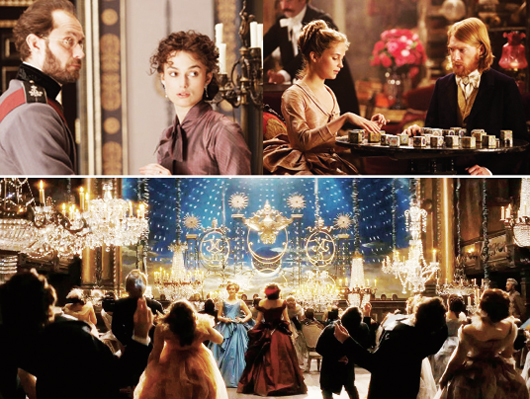Classics are sometimes very notorious. This is especially widespread when it comes to novels that are a thousand pages thick. Not many people would dare to touch that volume. I have never seen anybody who read Cervantes’s Don Quixote from the first page to the last. But thanks to the musical Man of La Mancha, we all know the hilarious adventures of Sir Quixote.

The same thing happens when you hear about Tolstoy’s Anna Karenina. There are a few reasons why people avoid this one. First, it is an exotic Russian literature. Second, it is over a thousand pages, and last we all get messed up with unfamiliar names from the first page. Still, it is good to give it a shot to read a so-called ‘great piece of literature.’ It will never let you down. I was very moved after I read Cien años de soledad (One hundred years of Solitude) by G. G. Márquez, which is a masterpiece of contemporary fiction (infamous for its complexity); but not everybody is a big fan of reading novels like myself.
But you are lucky. The movie director Joe Wright made this Russian masterpiece into a fabulous movie Anna Karenina. Not only did Joe Wright and a screenwriter, Tom Stoppard, condense the mammoth book into a movie slightly over two hours long, but also they made a groundbreaking adaptation of moving all the scenes into a theatre. This brought more chances for the audience to see the dramatic changes in the emotions of the characters. Anna Karenina was breathtakingly beautiful. Once you see the movie, you would probably feel like reading a book since the movie itself lures you in and makes you focus — the movie takes place inside a theater–like setting. The audience gets an impression that all of Anna’s love affair is like a play. But all these lead to better understanding of the complexity of Anna’s feelings.

Anna used to be the charming jewel of Saint Petersburg society and the proud, devoted wife of a politician who is 20 years older than her. She had a loving son as well. But something happened when her affection twitched towards the good-looking officer Vronsky. The love was so fatal and luscious that it made Anna forget every duty and attention she used to give to her family. This led to depth of misery. She was literally kicked out of society due to her love affair. She left her home and her beloved family. But in the end, she lost her Vronsky and chose to end her life that suffocated her so much. Ironically, Anna begged for mercy. “Oh god! Forgive me!”
Just like heavy vodka that burns very quickly and drowns you, Anna’s love was passionate, but too much passion even killed itself.
In contrast, Anna’s brother, Stiva and Dolly (originally Darya), her sister-in-law, showed a different perspective of a couple that underwent the seven-year itch. Although Dolly knew Stiva cheated on her, she forgave him ‘because it was love.’ She could not give any other explanation. The couple was shaky from the first scene of the movie. Dolly overcame the problem of their love, becoming monotonous with her overpowering love. Now, this is one way Tolstoy showed an example of couples coping with the duties of marriage virtuously. And for the most part, it shows what real men and wives’ relationships are.

Still, what fascinated me the most was Karenin, Anna’s husband. One may easily assume he was just a cold-hearted animal because he was calm all the time. Karenin was a man very devoted to his political life and religion; therefore it is obvious that he could not stand the conduct of his wife. When Anna asked for a divorce, Karenin did not accept it. Even after Anna came back from her affair with the young Vronsky, he forgave Anna and even her lover. It was actually Karenin who took care of Anya, Anna’s daughter with Vronsky after Anna had died. People kept calling him a ‘saint.’ I did not get it at first, but as I kept watching this movie, Karenin’s love toward Anna was quite moving and pure.
This movie raised my interest in reading the actual novel because all of these different shades of love fostered my curiosity. Understanding the concepts of different shades of affection in this movie was an utmost difficult task. Still, it is worthwhile to see the movie first and then move on to reading the novel. It may be hard to empathize the feelings of Anna or Kitty, young Vronsky or Karenin to many of us. However, just like Dolly said, we cannot ask why — ‘because it is love.’ After all, our life is full of love.
I am half way through this thick masterpiece of about 1,500 pages and still thrilled to find out what is the next.
source: Working Title Films
Kim Hye-ryung Reporter parisienne314@uos.ac.kr

